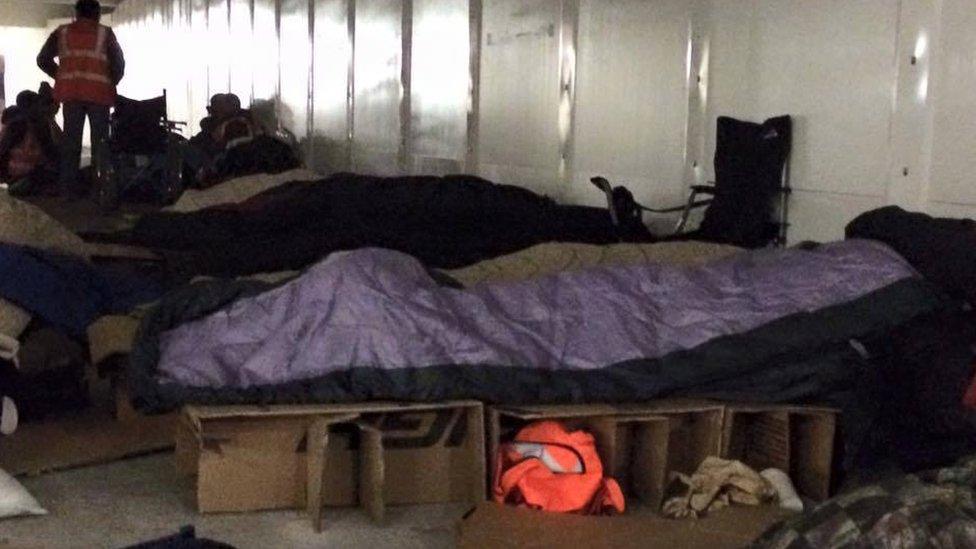More than 250,000 are homeless in England - Shelter
- Published
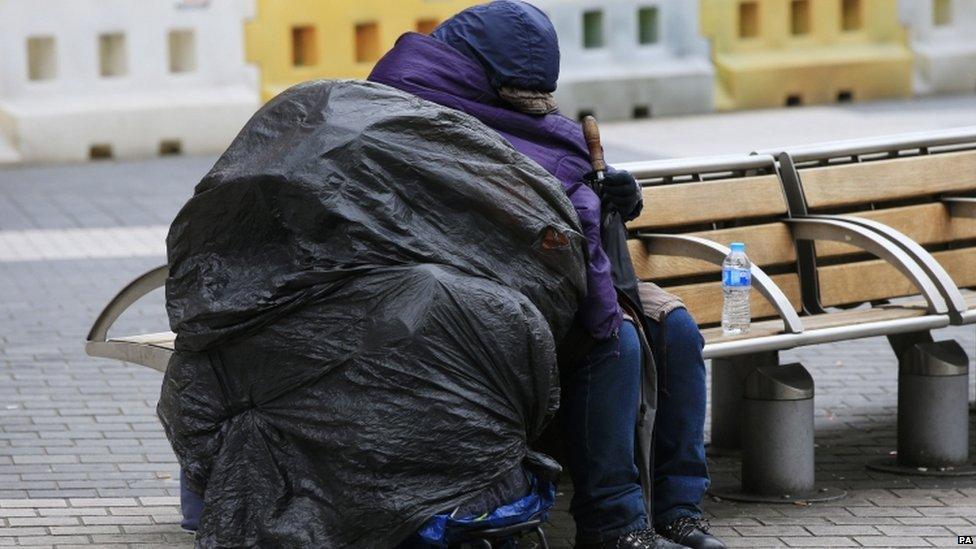
Rough sleepers are only one section of people who are counted as homeless
More than a quarter of a million people are homeless in England, an analysis of the latest official figures suggests.
Researchers from charity Shelter used data from four sets of official 2016 statistics to compile what it describes as a "conservative" total.
The figures show homelessness hotspots outside London, with high rates in Birmingham, Brighton and Luton.
The government says it does not recognise the figures, but is investing more than £500m on homelessness.
For the very first time, Shelter has totted up the official statistics from four different forms of recorded homelessness.
These were:
national government statistics on rough sleepers
statistics on those in temporary accommodation
the number of people housed in hostels
the number of people waiting to be housed by social services departments (obtained through Freedom of Information requests)
The charity insists the overall figure, 254,514, released to mark 50 years since its founding, is a "robust lower-end estimate".
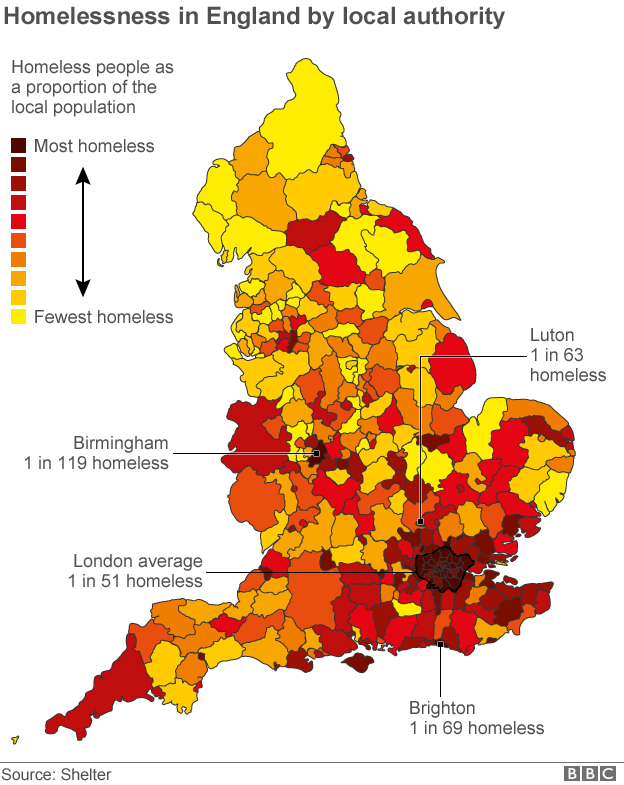
It has been adjusted down to account for any possible overlap and no estimates have been added in where information was not available.
Charity chief executive Campbell Robb said: "Shelter's founding shone a light on hidden homelessness in the 1960s slums."
He warned the housing crisis was "tightening its grip" on the UK.
"Hundreds of thousands of people will face the trauma of waking up homeless this Christmas," he said.
"Decades in the making, this is the tragic result of a nation struggling under the weight of sky-high rents, a lack of affordable homes and cuts to welfare support."

'I lost everything'
Mother-of-two Mandie had a steady job in the civil service at the beginning of the year but now lives in emergency accommodation with her teenage twin daughters.
"I don't know where we'll end up next," she said.
Mandie, 47, was made redundant in January and evicted from her two-bedroom flat in Luton.
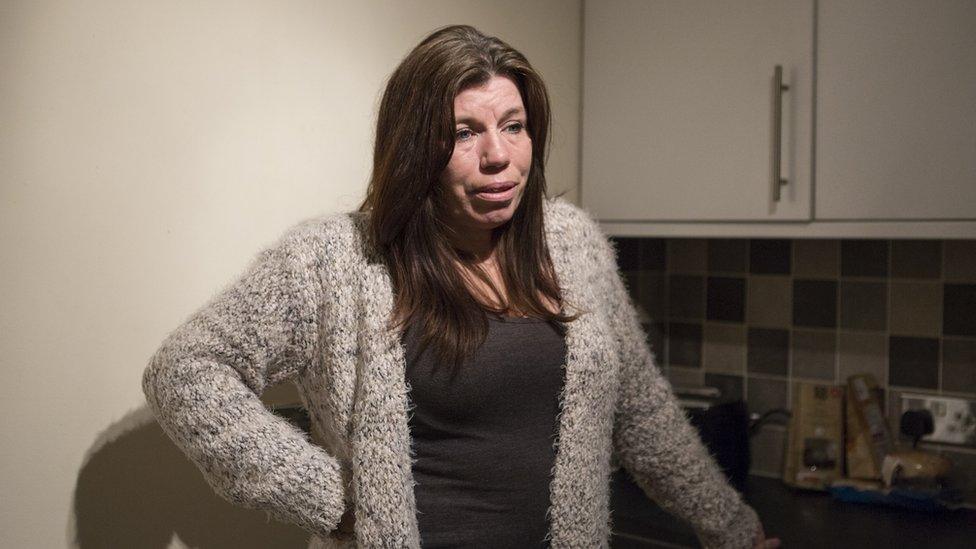
Mandie said her teenage children were nearly taken from her care after redundancy led to eviction
"It was horrifying," she said. "The council threatened to take my children from me."
Mandie and her 13-year-old twins stayed at friends' houses and in hotel rooms while she waited to receive housing benefit payments.
"When will we be able to have a home to call our own?" she said.

The analysis shows homelessness is at its highest rates in central London, with as many as one in 25 without a home in Westminster and one in 27 with nowhere to live in Newham.
But there are also many hotspots of severe homelessness stretching way beyond the capital, including:
Luton - one in 63 homeless
Brighton - one in 69
Birmingham - one in 119
Coventry - one in 204
Manchester - one in 266
Slough - one in 164
Reading - one in 170
One of the charity's founders, Des Wilson, now in his 70s, said he hoped the country would respond to Shelter's urgent rallying call "with the same combination of anger and compassion with which it supported our work all those years ago".
The Department for Communities and Local Government said homelessness was down on the 2003 figures and added: "However, we know that one person without a home is one too many.
"That is why the government is investing over £500m during the course of this parliament to tackle homelessness.
"This includes protecting £315m for local authority homelessness prevention funding and £149m for central government funding."
'Widening gap'
Martin Tett, the housing spokesman for the Local Government Association Housing, said councils were doing everything they could within existing resources to prevent and tackle the problem.
But he said that funding pressures, the lack of affordable housing, and rents that are rising above incomes were leaving many councils struggling to cope with rising homelessness across all areas of the country.
He said: "Finding emergency housing for homeless people, particularly young or vulnerable people or those with families, is increasingly difficult for councils.
"Councils need powers and funding to address the widening gap between incomes and rents, resume their historic role as a major builder of new affordable homes and join up all local services - such as health, justice and skills.
"This is the only way to deliver our ambition to end homelessness."

Have you been affected by issues covered in this story? Are you a volunteer for a homeless charity? Let us know about your experiences. Email haveyoursay@bbc.co.uk, external with your stories.
Please include a contact number if you are willing to speak to a BBC journalist. You can also contact us in the following ways:
WhatsApp: +44 7525 900971
Send pictures/video to yourpics@bbc.co.uk, external
Tweet: @BBC_HaveYourSay, external
Send an SMS or MMS to 61124 or +44 7624 800 100
- Published11 November 2016
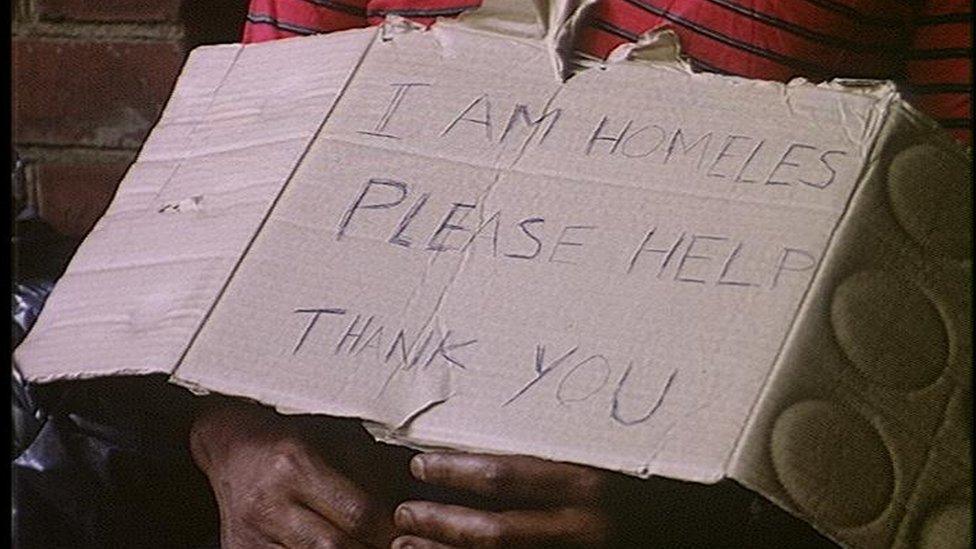
- Published25 April 2016
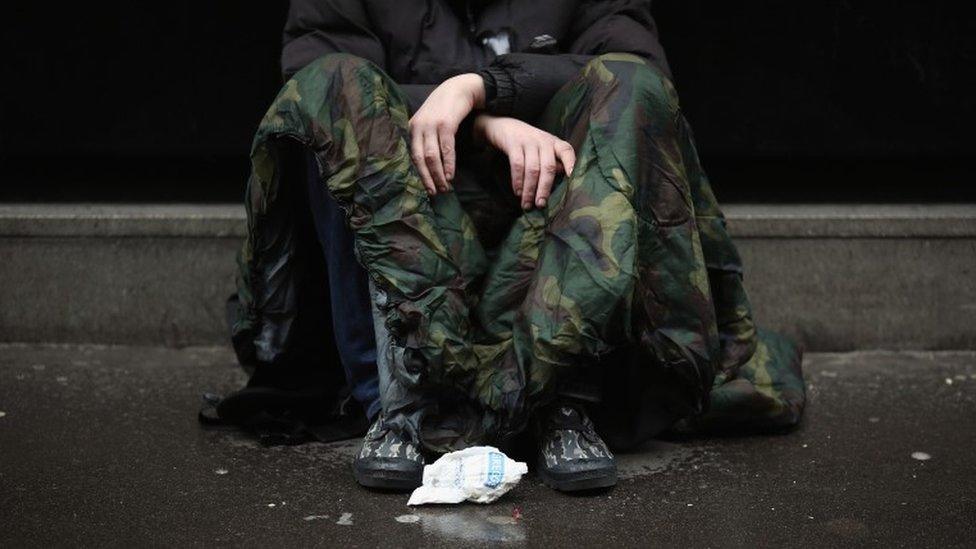
- Published18 November 2016
